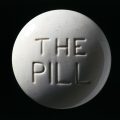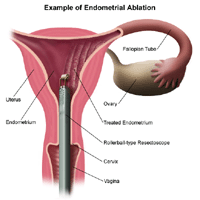Rheumatoid arthritis is an autoimmune disorder which causes the body’s immune system to attack the joints, resulting in pain and swelling. About 1.3 million people in the United States have rheumatoid arthritis, and of these, nearly 75 percent are women. “In fact, 1–3 percent of women may get rheumatoid arthritis in their lifetime. The disease most often begins between the fourth and sixth decades of life, however, RA can start at any age.”
At this point in my research into hormonal contraceptives, any disease that affects women so much more drastically than men I find suspicious. While reading the Nelson Pill Hearings (NPH), the testimony of Dr. Giles Boles, a professor of internal medicine, caught my attention. He was discussing oral contraceptives and rheumatoid arthritis. Like diabetes, this is another connection I had never heard about before.
At the hearings, Boles describes a 24-year-old woman who was experiencing mild rheumatic symptoms. After running some tests, she showed three abnormalities commonly associated with lupus. She had been taking oral contraceptives for 8 months and was on no other medication. “She was advised to discontinue her oral contraceptive therapy and within 6 weeks all of her laboratory abnormalities had disappeared.” Doctors continued to monitor her for over 2 years and she remained disease-free.
He also spoke about a two-year study published in 1969 that showed rheumatoid arthritis in women taking oral contraceptives increased more than 50 percent. Another study from the same year reported that 22 women with rheumatic symptoms had their symptoms diminish or disappear after discontinuing the pill (NPH page 6089).
That study, which was originally published in the British medical journal Lancet, was also discussed in Barbara Seaman’s book The Doctors’ Case Against the Pill (page 122):
“Over the past three years we have seen 22 young women who… after beginning oral contraceptives developed [arthritic symptoms]. The joint swelling was usually limited to the hands. On cessation of the oral contraceptive, the symptoms disappeared… We specifically inquire as to the use of oral contraceptives in all young women we see with rheumatic complaints…”
In researching the connection further, my first stop was the Centers for Disease Control. On their page for rheumatoid arthritis under “Risk Factors” is the following:
Oral Contraceptives (OC): Early studies found that women who had taken OCs had a modest to moderate decrease in risk of RA. However, most recent studies have not found a decreased risk. The estrogen concentration of contemporary OCs is typically 80%-90% lower than the first OCs introduced in the 1960s. This may account for the lack of associations in recent studies.
This seems very odd to me for a few reasons. First of all, if oral contraceptives decrease the risk of rheumatoid arthritis, why put it under “Risk Factors?” Secondly, though the “early studies” being cited are from 1993 and 1989, they point to the higher concentration of estrogen from pills in the 1960s as a reason for the conflicting information. Yet in 1970, Dr. Boles testifies about a very real connection between rheumatoid arthritis and the use of oral contraceptives.
Rheumatoid Arthritis on the Rise
“The incidence of rheumatoid arthritis (RA) in women has risen during the period of 1995 to 2007, according to a newly published study by researchers from the Mayo Clinic. This rise in RA follows a 4-decade period of decline and study authors speculate environmental factors such as cigarette smoking, vitamin D deficiency, and lower dose synthetic estrogens in oral contraceptives may be the source of the increase.”
Yet this WebMD article discusses a small German study that showed that oral contraceptive use could ease some symptoms of RA. Incidentally, the article also points out, “certain patients with inflammatory arthritis may increase their risk of blood clots by going on oral contraceptives.” This statement makes it seem that only some women are at an increased risk for blood clots when using oral contraceptives. That’s untrue. ALL women who use hormonal contraceptives are at an increased risk for blood clots.
While the German study was small and focused on symptoms, a meta-analysis of 17 studies showed no “protective effect of oral contraceptives on the risk for RA in women.”
Perhaps even more strange are the findings presented at the American College of Rheumatology Annual Meeting in Boston in 2014. The study presented there showed that choice of contraception may influence rheumatoid arthritis autoimmunity risk, with the biggest risk coming from IUDs (intrauterine device), though the research findings don’t specify whether patients used a copper IUD or a hormonal IUD.
According a meta-analysis by Hazes and van Zeben the overall unsatisfactory state of studies relating RA to the contraceptive pill suggest
“that oral contraceptive use may in fact be a marker for some other causal factor.”
Another article by William H. James from the Annals of Rheumatic Disease describes the problem with determining the connection between oral contraceptive use and rheumatoid arthritis:
“Over the last decade a dozen large scale studies have offered strikingly dissimilar conclusions on this possibility. An international workshop was held in Leiden in 1989 in an attempt to reach a consensus. It is not unfair to comment that consensus proved evasive.”
Is Rheumatoid Arthritis Connected to Hormonal Contraceptives or Not?
In 1970, the research clearly showed a connection between rheumatoid arthritis and hormonal contraceptives. Further research confirmed that. Then other studies attempted to demonstrate that the pill mitigated symptoms, while a meta-analysis showed no protective effect. Yet recent findings show an increased risk for women who use IUDs. In all of the recent research, the only consensus seems to be that there is no consensus.
The bottom line is that evidence about the connection between rheumatoid arthritis and hormonal birth control is inconclusive at best, incoherent at worst, and sometimes downright contradictory. Once again, I have to ask why. Why were there not conclusive studies conducted immediately after the 1970 Congressional hearings? Who gains by there still being confusion about this issue? Who loses? That one I can answer; women lose.
We Need Your Help
More people than ever are reading Hormones Matter, a testament to the need for independent voices in health and medicine. We are not funded and accept limited advertising. Unlike many health sites, we don’t force you to purchase a subscription. We believe health information should be open to all. If you read Hormones Matter, like it, please help support it. Contribute now.








































